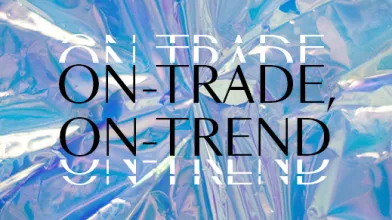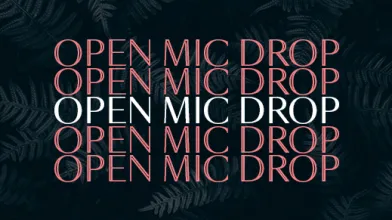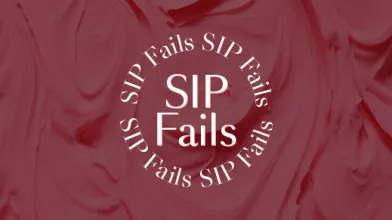Sam, why should we be sensitive to the senses?
"Your sensory apparatus is absolutely extraordinary. Suppose you think of shrinking down a can of Coca-Cola to the size of a human hair. Your mouth would be able to taste a grain of grit in between your teeth, the size of the O in the Coca-Cola. So you have this incredible apparatus. You can taste tens of thousands, you can smell tens of thousands of different aromas; it's a matter of applying them.
Nudity, animals, spectacle, fireworks, all of those can be put to delight and surprise people and give them a wonderful time, whether looking at what's at the end of the glass or for a much more extravagant experience."
What does this mean for hospitality?
"Who wouldn't want to gorge and saturate their senses with an illuminating and memorable experience? When you look at the hospitality industry, the hospitality industry has always been an expert in the senses. If you're a great restaurateur, you've considered how all of the senses are addressed right the way throughout the entire dining experience.
One of the things that we've been doing over the last 10 years, is rather than giving an experience like a gallery space or a blank canvas pedestalling the food and drink, how do you create something much more like an attraction? Something much like a theme park ride with a linear journey, when you can effect a very, very specific narrative arc through the store."
We’re going to need an example…
"For Ballantine’s we created an experience that looks at your perception of time related to whisky, so that as you have a glass of one of the prestige spirits in the Ballantine’s range, your perception of time changes so much that by the end of the experience, you get 15 minutes back of your life to do whatever you want with. It was very fascinating looking at how we perceive the world and how something that's as sensory as whisky can be used to mediate your perception of something as immutable as time."
And any venue can make an appeal to common sense?
"There is not a venue on the planet that can't saturate the senses. All of those buildings are effectively arenas for sensory pleasure. They've got sound systems, they've got tables, they've got glassware, they've got all the armoury to engage people in these sort of terrible and terrific sensory experiences. The most important thing is addressing things in a novel way that people haven't perhaps considered before, and all you need for that is originality. Some of it is just giving people the time, the space, and the direction to focus on the incredible apparatus they have within themselves. You contain wonders."
Did the pandemic change consumer sensibility?
"Since this pandemic has lifted we've seen what I would term a new decadence. People are looking for sybaritic pleasures. And sybaritic pleasures, of course, are related to the senses somehow. The pleasures of dining, the pleasures of eating. The joys of other people socialising or doing something that sometimes might make you a little bit uncomfortable or take you into new domains. Be them flavour-wise, experience-wise, or sensuality-wise. We've seen all of this explode.
For myself, I'm wholeheartedly on board, it gives me so much joy. Before the pandemic there were increasing strictures and moral panic about what we were putting in our bodies. And I think now people are giving themselves a break. They're enjoying the physicality. They're enjoying their body. Enjoying learning more about how it apprehends the world, and this can only be a good thing."
This all makes sense. So we’re at the bar, it’s our round, what’s your order?
"Easy. I'll have a martini – a dry martini with a twist."
Designing venues that saturate the senses
05 January 2023
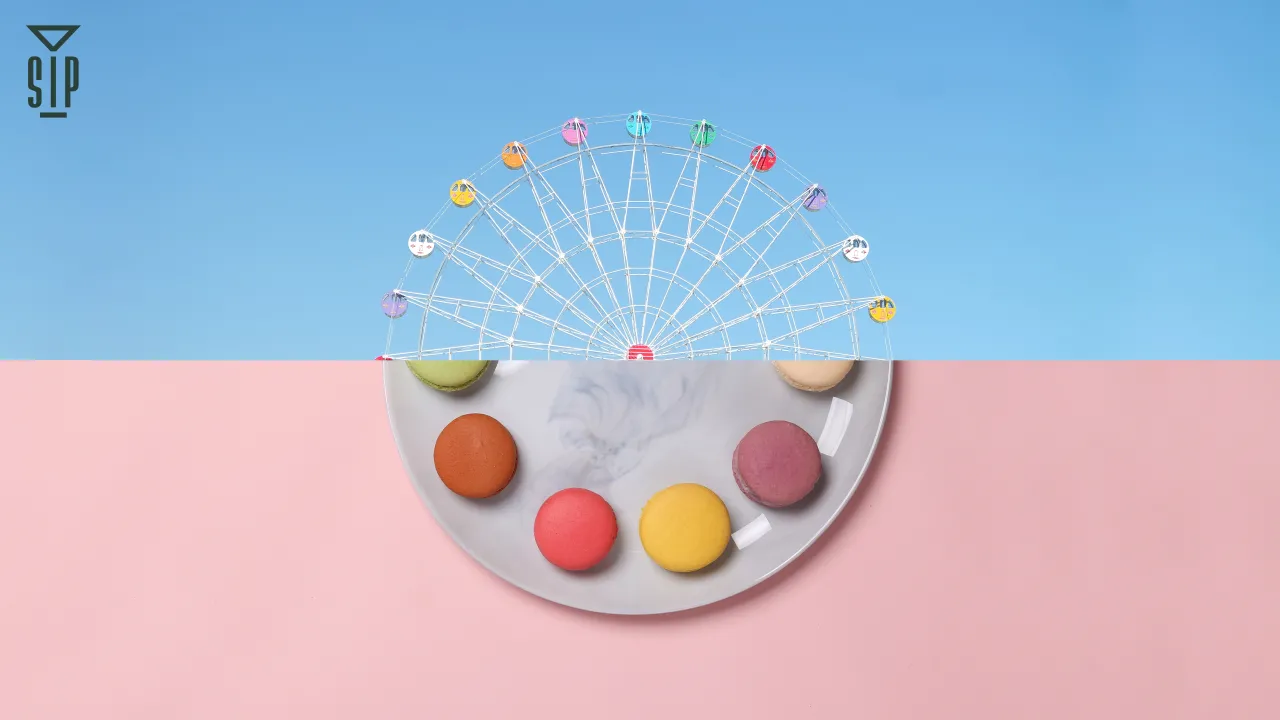
Bompas & Parr is the bombastic multi-sensory experience design agency behind such projects as the world-first AI banquet in New York City, NFT canapés, glow-in-the-dark sushi, and the ‘Vomit Vault’ of London. We ask the co-founder and self-proclaimed architect of taste Sam Bompas to explain why it makes good sense for venues to appeal to consumer senses.
Related shows
© World’s Best Bars 2024. All Rights Reserved.
Content to be shared with those over the legal drinking age only - Enjoy responsibly.
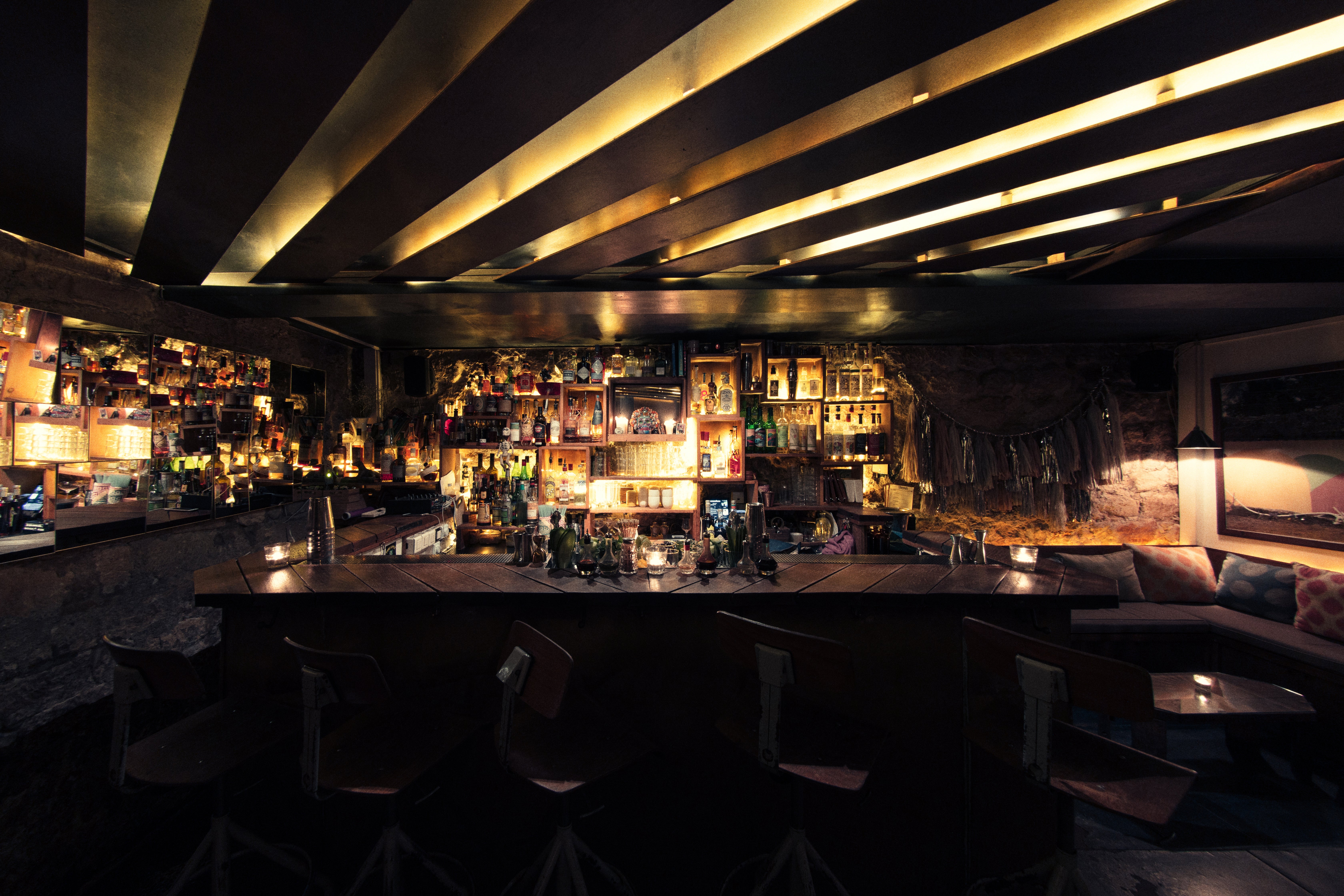
Check your email
If we recognize your account, a link to reset your password has been sent to your email address. If you haven’t received it, please check in your spam folder and add to whitelist.
Check your email
A link to activate your account has been sent to your email address. If you haven’t received it, please check your spam folder and add it to whitelist.

